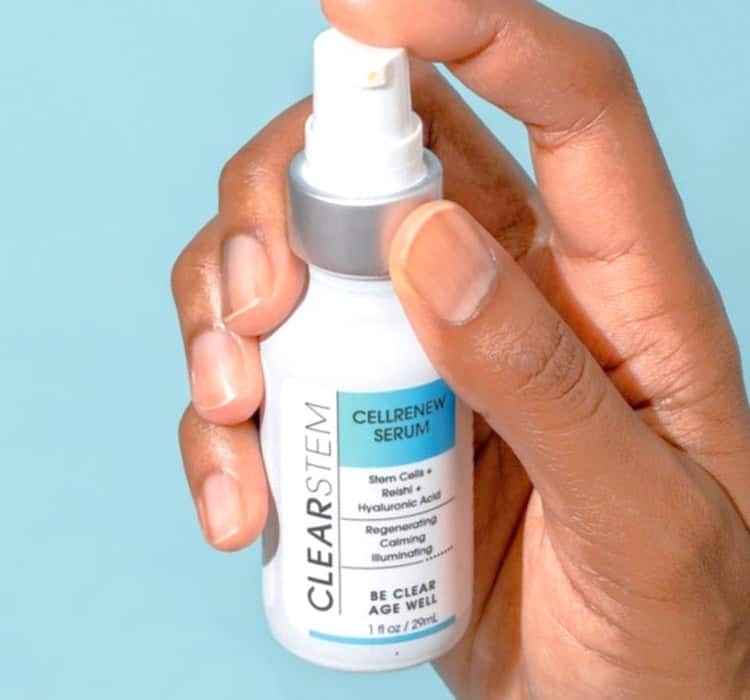Collagen is the MVP (most valuable protein) in the beauty and health game today– and for good reason. However, one question people fail to ask is: Can you be allergic to collagen supplements and products? Even if you swear by collagen’s benefits, the answer will make you think twice.
What is Collagen, Anyway?
Let’s take a little trip back to our high school biology class for a minute to recall collagen’s role in the body. For starters, collagen is a protein that is made up of a chain of building blocks called amino acids and peptides.
Our bodies naturally manufacture several types of collagen, each of which play an important role in the development, structure, and function of essentially every organ system. If you are focusing on the skin benefits of collagen, you’ll want to keep an eye out for “type I collagen”.
But there’s a catch: there is no collagen without vitamin C. This is because vitamin C or ascorbic acid is a necessary cofactor needed for two important enzymes that build and stabilize new collagen. As a matter of fact, long-term vitamin C deficiency results in the disease known as scurvy (yes, like sailor and pirate scurvy). Scurvy causes weak gums, tooth loss, and poor wound healing due to lack of collagen synthesis and is largely unheard of in modern times, but it still occurs in populations with prolonged food shortages and malnutrition.
This is why the majority of the collagen products you will encounter on the market will include vitamin C as a prominent ingredient. Additionally, many products will contain collagen peptides rather than whole collagen protein. But don’t worry, you’re not getting ripped off. These peptides are pieces of collagen that are easier for the body to take up and assemble into its own homemade collagen. (Think collagen à la Ikea).
Curious to learn more about collagen and other amazing things your skin has going on under its surface? Give our latest ebook a look and get your skin looking and feeling its best.
Are Collagen Allergic Reactions Possible?
Now that we have established that collagen is both a natural and necessary substance, let’s go beneath the surface. Despite its reputation as one of the keys to fighting the signs of aging, collagen supplementation is not for everyone. So, can you be allergic to collagen supplements? Unfortunately, the answer is yes.
As mentioned previously, collagen is a protein made up of tinier peptides. Certain proteins and peptides are allergens that can trigger an allergic reaction, especially when they come from an animal source such as fish, eggs, or chicken. Other better-known protein-related allergies include:
- Albumen (egg protein)
- Gluten
- Peanut allergies
With that said, most people easily tolerate and see benefits from collagen supplements. However, always check the label for the source of the collagen or select a hypoallergenic collagen supplement. If you have a known allergy to certain animal sources like fish or cattle, it is more likely that you may experience a collagen allergic reaction.
Helpful tip: whenever you are trying a new skincare product or cosmetic, it is best to do a patch test on a small area of skin. Apply a bit of product to the inner portion of your elbow or behind the ear area. After 24 to 72 hours, take note of any redness, blistering, or other unwanted changes to your skin and stop using the product.
Top 3 Signs You May Have a Collagen Allergy
Not everyone who has a collagen allergy will show signs and symptoms right off the bat. Depending how sensitized your body is to an allergen and how much you are exposed to determine the extent or severity of the allergic reaction.
1 – Your Gut Health Gets Messed Up
If you think a food supplement or product is giving you an upset stomach, you’d be wise to listen to your gut feeling. While you may be excited to double up on your collagen supplement intake to speed up its effects, you might be doing more harm than good.
Due to its large protein structure, collagen requires more energy to break down. Like many of the things we ingest, collagen peptides are absorbed in the intestines and then transported throughout the body.
Taking too much at one time can make it harder to digest the collagen supplement and lead to build-up in the gastrointestinal tract. Slower digestion of collagen in the stomach can lead to gas, discomfort, and pain. While the excess amount of collagen in the GI tract can cause bloating, cramps, and constipation or diarrhea in some people.
2 – More Headaches than Usual
Nobody enjoys having a headache, especially after spending money on an expensive supplement. But can collagen cause headaches? As mentioned, collagen is a large protein that contains many different peptides and amino acids.
One amino acid in particular, glutamic acid (also known as glutamate), is present in collagen and associated with headaches and migraines when ingested in large amounts. Normal doses of collagen supplements are unlikely to trigger headaches alone, however, taking high doses or in combination with other food and medications that also increase glutamic acid may up the chances.
3 – You Experience an Anaphylactic Reaction
Lastly, if you experience a severe allergic reaction after taking a collagen supplement, stop taking it and head to the emergency room right away. Depending on the source of the collagen or collagen peptides, trace amounts of allergens may be present and can be enough to trigger an immune response.
Watch out for signs and symptoms of anaphylaxis due to collagen such as:
- Hives or collagen allergy rash
- Throat tightening
- Trouble breathing
- A weak yet fast pulse
- Low blood pressure
- Fainting
How to Boost Your Natural Collagen Production
If you have ever used collagen peptides or supplements and found out you were allergic, don’t worry. While experts have mixed opinions regarding the true value of collagen supplementation on actual collagen levels in the body, everyone can agree that boosting your natural collagen levels is the key to restoring and retaining skin vitality.
Watching what you eat, drink, and your overall lifestyle choices can positively impact your current collagen levels and new collagen production. A balanced diet rich in protein, low in refined sugars, enough vitamin C, and plenty of water provides the necessary materials to build and repair collagen. Avoid smoking and excessive UV exposure, as neither will do your complexion any favors.
Additionally, consider using dermatology-grade lasers and microneedling on areas of your skin that need a boost of collagen. By inducing so-called microdamage to the skin, the body will deploy protein and other nutrients to heal these areas. Collagen is one of the materials the body uses to repair damaged tissue, as it is one of the most abundant proteins in the body.
Topical retinol application can also be used to stimulate natural collagen production in the skin. However, retinol can cause stinging and rashes in people with sensitive skin. We created a detailed summary of the differences between collagen and retinol if you want to learn more.
There are also many types of collagen serums and facial creams that are infused with collagen. Whenever you are shopping for a facial serum or skincare product you need to take an extremely close look at the ingredient list. Many facial serums are filled with harsh chemicals or comedogenic ingredients that can clog your pores. If you have acne prone skin and want to try a skin serum, its essential to find one which will decrease inflammation with mostly natural ingredients. If you are looking for a collagen facial serum specifically, I highly recommend using Clearstem Skincare’s CELLRENEW Collagen Infusion Serum. It combines both collagen and hyaluronic acid keep your skin hydrated and your pores tight. This serum has worked wonders for readers dealing with hormonal acne and dry skin.
Bottom line: Are Collagen Supplements Worth the Risk?
Can collagen cause diarrhea and constipation? Yes. Can collagen cause headaches? Also, yes. While these are unpleasant side effects, it is important to remember that collagen allergies are very uncommon for most healthy people. The collagen itself may not even be to blame but rather the other ingredients or allergens found in the product. As always, check the label, follow the recommended dosage, and do a patch test on a small area of your skin whenever using a new product.
With that said, simply adding collagen to your diet and skincare routine will not guarantee that your fine lines and sagging skin will disappear. You may not be endangering your health by using collagen supplements, but you may potentially be wasting your hard-earned money on something that is overhyped.
If you want a simple foolproof way to naturally clear your skin and reduce inflammation throughout your entire body, take a look at my guide, Unmasking Acne.


